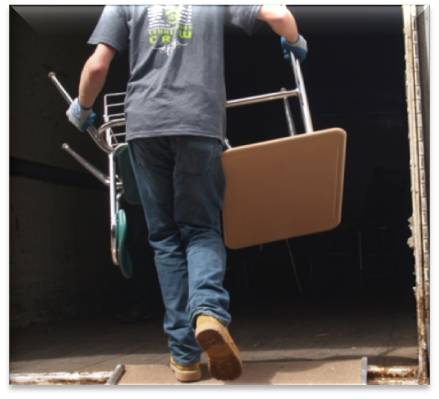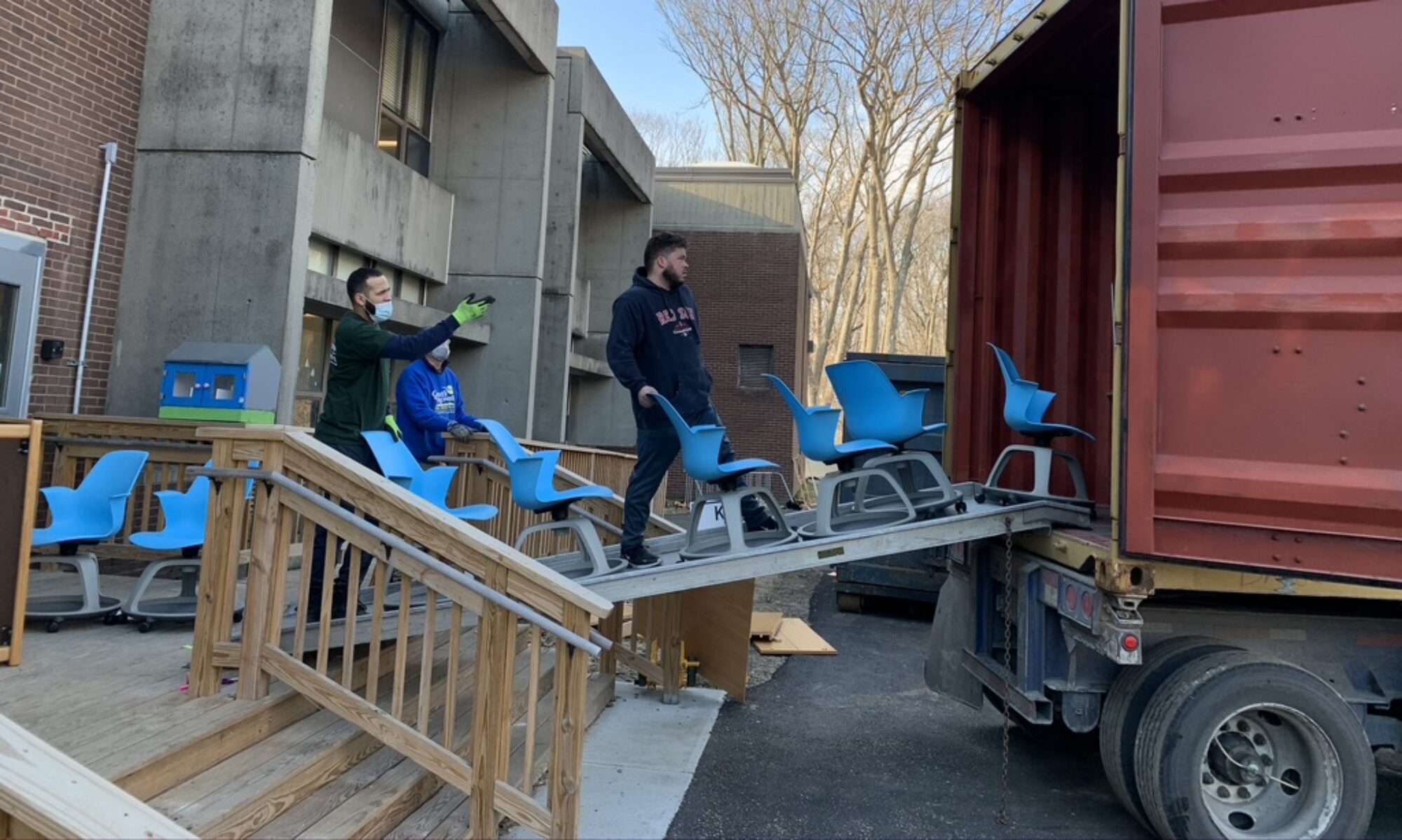The Challenge: Surplus in Dumpsters. Perfectly Good Stuff …
Drexel is one of America’s best science and engineering schools, growing rapidly and straining its Philadelphia campus.
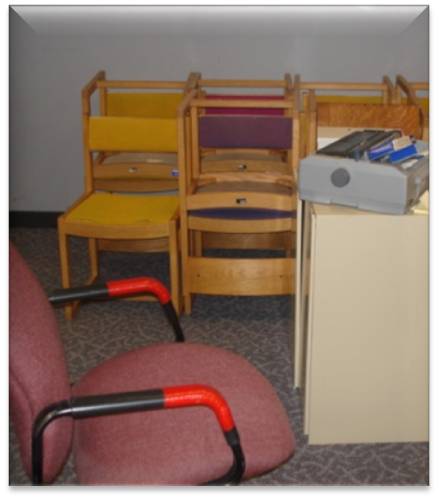
Like every large organization, Drexel turns over a lot of furniture. There are constant renovations and refits; there are planned replacements of dorm, classroom, laboratory and administrative furnishings and equipment; there’s a constant stream of old furniture discarded in ones and twos.
As a leading school in environmental engineering, Drexel practices what it preaches. Drexel has a serious commitment to sustainability in energy use, building practices, waste reduction and recycling.
… and Nowhere to Put It
In 2010 Drexel began to look at the reuse or recycling potential in its surplus assets. Drexel realized that most of its surplus furniture and equipment could be reused – or if not reused then recycled for material value. But Drexel had no way to make this happen. Its campus is congested, access to many buildings is difficult, and there is no space on-campus to store new or surplus furniture. Drexel couldn’t warehouse furniture for possible reuse, because the cost to handle, store, track, and ultimately bring surplus back to campus is far more than the cost simply to purchase new. Drexel’s surplus was just being thrown away.
Solution: Less-Than-Truckload Reuse
Drexel has a standing relationship with a regional mover, Corporate Interiors, who has installed, moved, and stored furnishings on the Drexel campus for many years. Drexel had also heard about IRN’ capability to move surplus into U.S. and international disaster relief and development initiatives. Drexel asked CI and IRN to propose an alternative to throwing their surplus in the dumpster.
In June 2010 IRN and CI proposed a solution.
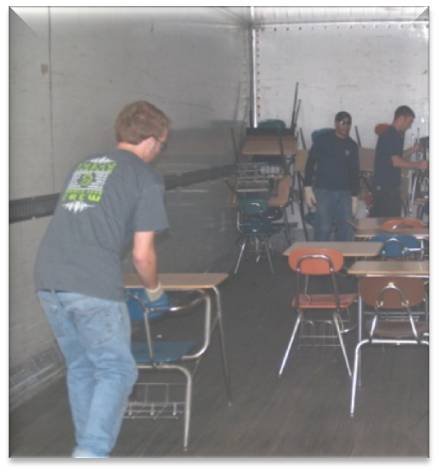
CI has trucks on or near Drexel’s campus almost every day. CI proposed to set up a simple order management system for Drexel. When any Drexel department has surplus, even if it’s just one or two pieces, they call CI with basic information: item count, description, location, schedule. The next time CI has a truck in the area, they swing by, pick up the surplus, and take it back to their warehouse.
At its warehouse, when CI accumulates enough surplus to fill a trailer , they call IRN with the inventory. IRN makes a match with one of its nonprofit partners and sends a trailer or overseas container. CI loads the container, and it is shipped for reuse.
For Drexel, the program is as simple as a phone call. For CI the program is as simple as extending the routes of trucks already on the road.
Pickups at Drexel started in July 2010. Drexel filled its first container inside six weeks, and since then (through January 2011) CI has filled and shipped close to a dozen containers.
Benefits: Nothing But Winners
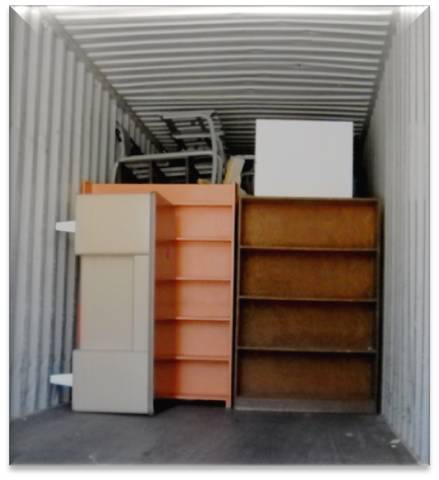
CI reports back to Drexel the quantity and destination of all the surplus removed from campus. Drexel can quantify the reduction of its waste stream and disposal costs and the improvement in its recycling rate. Drexel gets a great public relations story and a meaningful enhancement in its Sustainability program.
Drexel also benefits financially. Every item kept out of a dumpster reduces waste hauling and landfill costs. Drexel is paying CI to take surplus from its campus, but because CI is taking advantage of backhauls and warehouse space that would otherwise be empty, CI’s rates are more than competitive with disposal.
And most important, Drexel’s surplus is enriching the lives of desperately needy people. Drexel furniture and equipment has been provided to communities in Haiti, Nicaragua, Jamaica, and El Salvador.
A Comprehensive Reuse/Recycling Program
Less-than-truckload surplus is only one piece of a comprehensive program to reuse and recycle surplus property. For Drexel, like most schools, the majority of surplus comes from large furniture replacement and renovation projects – for example, when dorm furniture is replaced , or when a building is emptied for renovation.
On projects like these, IRN obtains an inventory which it matches against the needs of its charitable partners, and organizes labor to remove the surplus. When the project date arrives, IRN coordinates trailers to arrive and be “live-loaded” and shipped directly to recipient organizations. Items damaged or otherwise unsuitable for reuse are recycled for wood or metal value.
Combining large projects with less-than-truckload pickups, a comprehensive approach to managing surplus property results in nearly 100% reuse and recycling, saves money, and sends virtually nothing to the landfill.
